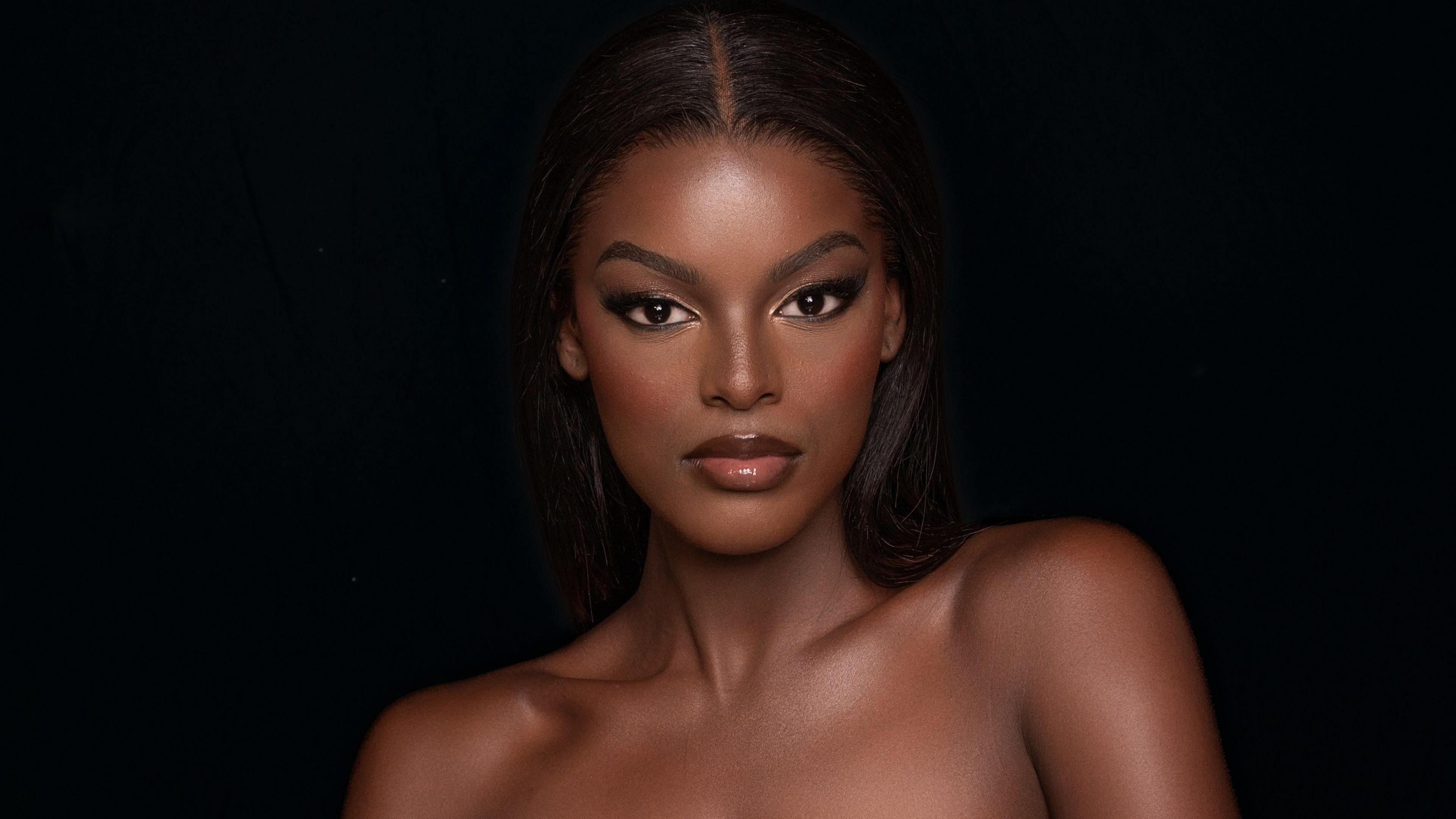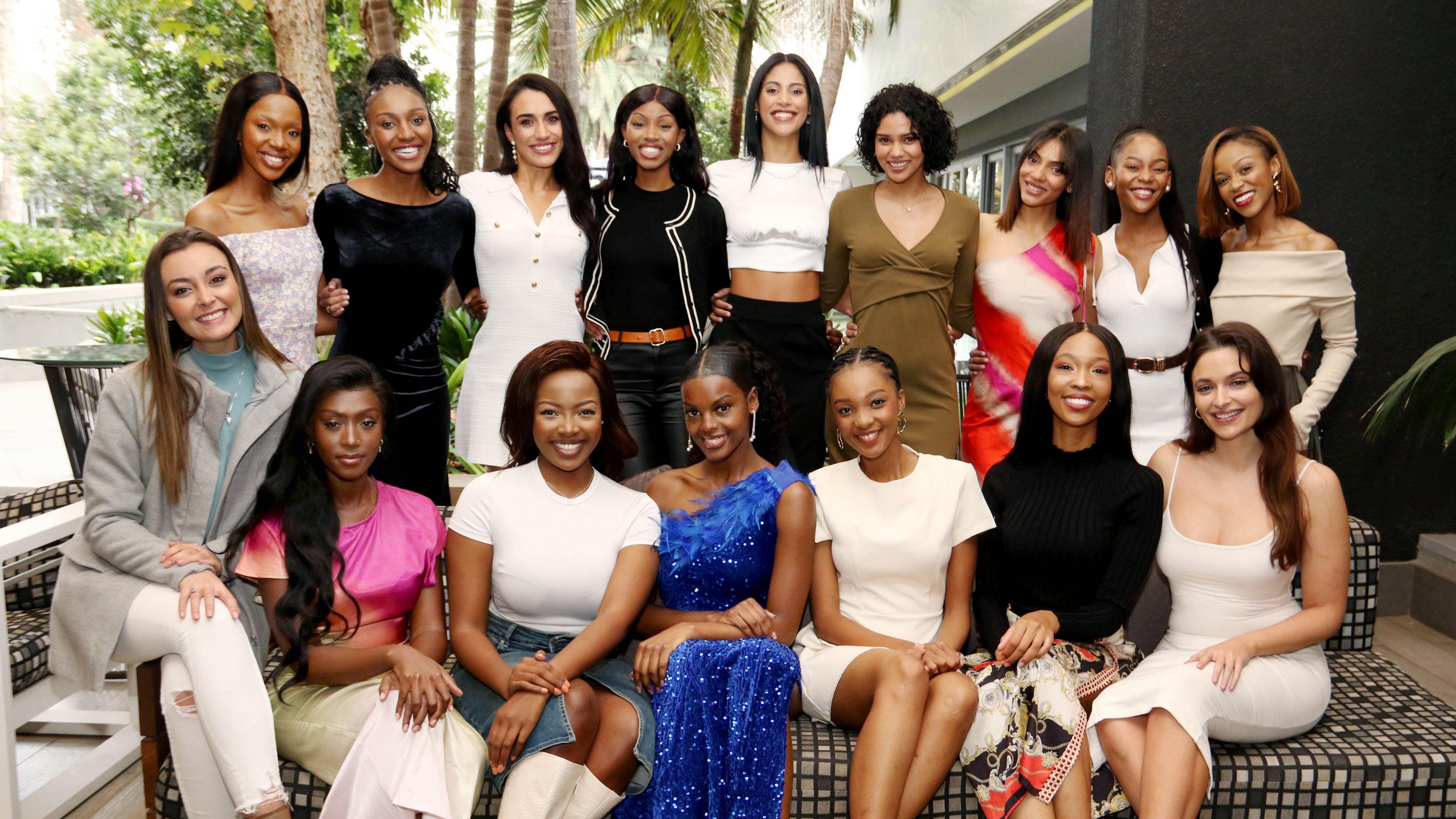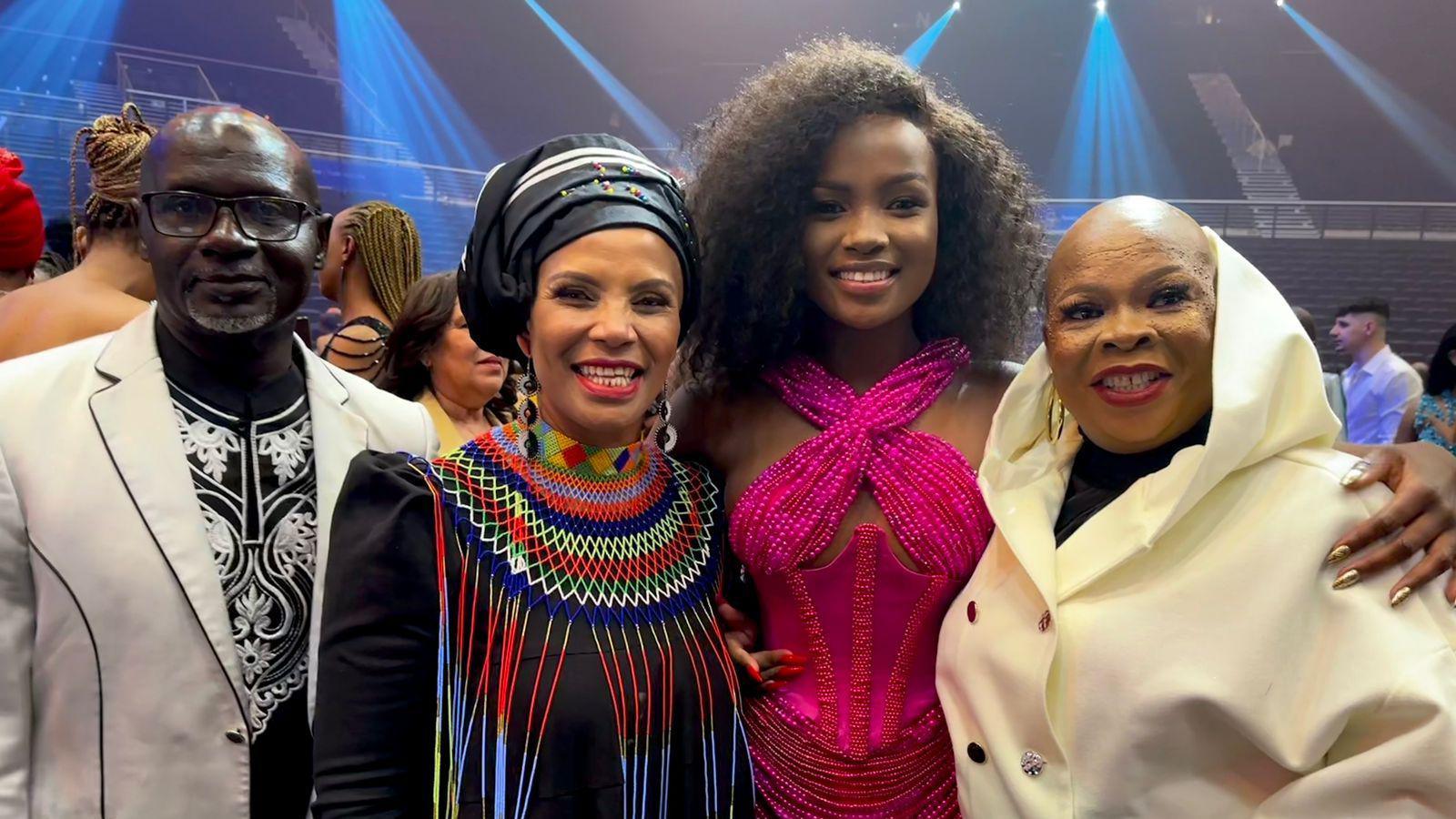Beauty contest sparks row over who counts as South African

South African Chidimma Adetshina has faced online abuse with people questioning her nationality
- Published
When law student Chidimma Adetshina clinched a coveted spot as a Miss South Africa finalist, her triumph unleashed a vicious backlash, unearthing a seam of xenophobia that lies close to the surface for some in the country.
The 23-year-old’s name hints at her connection to Nigeria, but internet detectives wanted to know more and combed through every inch of her life. They found that her father is Nigerian and though her mother is South African, her family had come from neighbouring Mozambique.
"On behalf of South Africans, we don’t recognise her and that name! She better start packing and go home,” raged one commenter on X.
But where is home? Ms Adetshina is South African, as verified by the organisers of the pageant. She has said in interviews that she was born in Soweto - the township next to Johannesburg - and grew up in Cape Town.
However, the “go-home” sentiment, and even harsher attacks, flooded social media. There was also a petition demanding her removal from the high-profile televised competition that amassed more than 14,000 signatures before it was taken down.
The country’s Culture Minister Gayton McKenzie, the leader of the Patriotic Alliance party, which has joined a coalition government and made migration issues a key part of its platform, chimed in.
“We truly cannot have Nigerians compete in our Miss SA competition. I wanna get all facts before I comment but it gives funny vibes already," he said on X.
The issue has touched a nerve in South Africa that goes beyond who will appear on stage at the final next weekend.

Ms Adetshina, in blue, was pictured with the other 15 short-listed contestants for this year's Miss South Africa competition
Ms Adetshina declined a BBC request for an interview but she did tell the Sowetan Live news site that the online hate she was facing made her think twice about competing.
"I am representing a country, but I don’t feel the love from the people I’m representing," she said.
Ms Adetshina added that the whole situation felt like "black-on-black hate", highlighting a particular strain of xenophobia in South Africa known as "afrophobia", which targets other Africans.
She felt that she was not the only contestant among the last 16 women with a name that had origins from beyond the country’s shores - there are some with South Asian and European names - yet she was receiving the bulk of the criticism.
Asked to respond to the comments that Ms Adetshina has faced, a Miss South Africa spokesperson did not address them directly but simply said that she was eligible to take part in the competition.
This was not the first time that this has happened. For Melissa Nayimuli, a Miss South Africa contestant last year, it has brought up difficult memories.
The 28-year-old was the target of the same vitriol heaped on Ms Adetshina because her father is Ugandan.
She told the BBC she was unsurprised at the reaction she had received as she had experienced it for most of her life.
“It’s something I tried to run away from, but how do you run away from yourself?” she questioned.
Ms Nayimuli said that while growing up she would constantly speak Xhosa, her mother tongue and one of South Africa’s official languages, to “prove her South African-ness”.
At home my father was my hero, but outside I saw him treated as an enemy"

Her voice cracked as she admitted that she felt shame at her Ugandan identity when she was younger because of the afrophobia that she experienced.
"I would not want to be seen with my father because of his darker skin and East African features were a dead giveaway," she told the BBC.
"At home my father was my hero, but outside I saw him treated as an enemy."
University of the Free State sociologist Dr Nombulelo Shange links this hostility to South Africa's history of racism and the apartheid system - which imposed a strict hierarchy that privileged white people.
There is a "sad apartheid mentality that we are struggling to shake as a country", she said.
"It shows the deep self-hate that we as black South Africans carry with us."
Dr Shange added that South Africans had internalised oppressive racist reasoning such as colourism, where lighter skin tones are perceived as better.
After apartheid ended in 1994, the government led by Nelson Mandela's African National Congress (ANC) welcomed African migrants and asylum seekers to the country in part to aid its reintegration into the continent after years of isolation.
But with many South Africans struggling financially, foreigners became the target for some frustrated by their situation.
Zimbabweans, Nigerians and Somalis, among others, have been accused of taking opportunities and resources from South Africans.
There is a “perception of outsiders as competitors for scarce jobs, resources, living space and services”, Michael Morris, head of media at the South African Institute of Race Relations, told the BBC.
He said the growing number of Africans succeeding in South Africa could “easily trigger resentment and violence”.
This climate of hostility has occasionally erupted into attacks. South Africa experienced its worst outbreak of violence against mostly African foreigners in 2008, when more than 60 people died.
“There are black South Africans who will argue that Africans from elsewhere in the continent don’t belong in South Africa," Mr Morris said.

Melissa Nayimuli was pictured with her family - her father (far left), her mother (second from left) and a colleague - after the Miss South Africa competition last year
More than a decade ago, Ms Nayimuli felt this animosity acutely when her father was arrested.
"My dad is the most kind-hearted, gentle soul in the entire universe," she said - yet he was treated like a criminal because, she believes, he looked like a foreigner.
When Ms Nayimuli’s mother reached the police station in the capital, Pretoria, where her husband was being held officers did not even have an explanation or a charge against him.
Her father was released and Ms Nayimuli’s family never spoke about it again.
They had often "tiptoed" around the xenophobia they faced but when it bubbled up during last year’s Miss South Africa it was a chance for them to address the issue directly and was, for Ms Nayimuli, part of a healing process.
Now, seeing Ms Adetshina experience the same level of abuse her heart goes out to her.
"She is not just a trending topic. She is a human being. She is a young woman getting bullied online - it's wrong, hurtful and so dangerous," she said.
But she emphasised that the xenophobes are a small minority and there are many South Africans who call for unity.
Leader of the opposition Economic Freedom Fighters (EFF) party Julius Malema defended Ms Adetshina last week, saying: “Why do people want to say she’s from Nigeria or Mozambique? She was born here.”
This message of coming together is one that Ms Nayimuli ended her Miss South Africa journey on.
Last year, as the bright lights shone on her during the final round of the competition, she called for African unity in the face of hate.
“Let’s step into our power as Africa. We are one,” she said to a raucous auditorium who cheered on her message of togetherness.
But it seems it did not take root as the discrimination has resurfaced.
Next Saturday, Ms Adetshina will get her chance to take to the stage, but it is not yet clear if she will tackle the haters head on.
You may also be interested in:

Go to BBCAfrica.com, external for more news from the African continent.
Follow us on Twitter @BBCAfrica, external, on Facebook at BBC Africa, external or on Instagram at bbcafrica, external